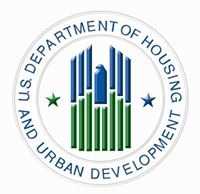HUD and its partners to generate awareness of lead poisoning and solutions October 22 – 28
WASHINGTON – (RealEstateRama) — Nearly half a million children living in the United States have elevated levels of lead in their blood that may cause significant harm to their health. To help increase awareness of this preventable disease, the U.S. Department of Housing and Urban Development (HUD) and its partners are spearheading National Lead Poisoning Prevention Week, which will take place October 22-28. This year’s theme is “Lead-Free Kids for a Healthy Future.”
HUD’s Office of Lead Hazard Control and Healthy Homes, the Centers for Disease Control and Prevention (CDC) and the U.S. Environmental Protection Agency (EPA) are collaborating in a national public awareness campaign to help individuals, organizations, and state and local governments reduce childhood exposure to lead.
“I’ve seen firsthand the tragic consequences when young children are exposed to hazardous lead and how it can impact them throughout their lives,” said HUD Secretary Ben Carson. “Any step we can take to prevent and eliminate these dangers from our homes is a step we must take.”
During National Lead Poisoning Prevention Week, HUD developed a special partner toolkit that underscores the importance of testing your home and children, and provides tips on how to prevent lead poisoning’s serious health effects. Below are some simple things to help keep your family safe:
- Get Your Home Tested: Find out how to minimize risks of lead exposure by hiring a certified professional to test older homes for lead.
- Get Your Child Tested: A simple blood test can detect lead. Consult your doctor for advice on testing your children.
- Get the Facts: Find out about the hazards of lead exposure.









